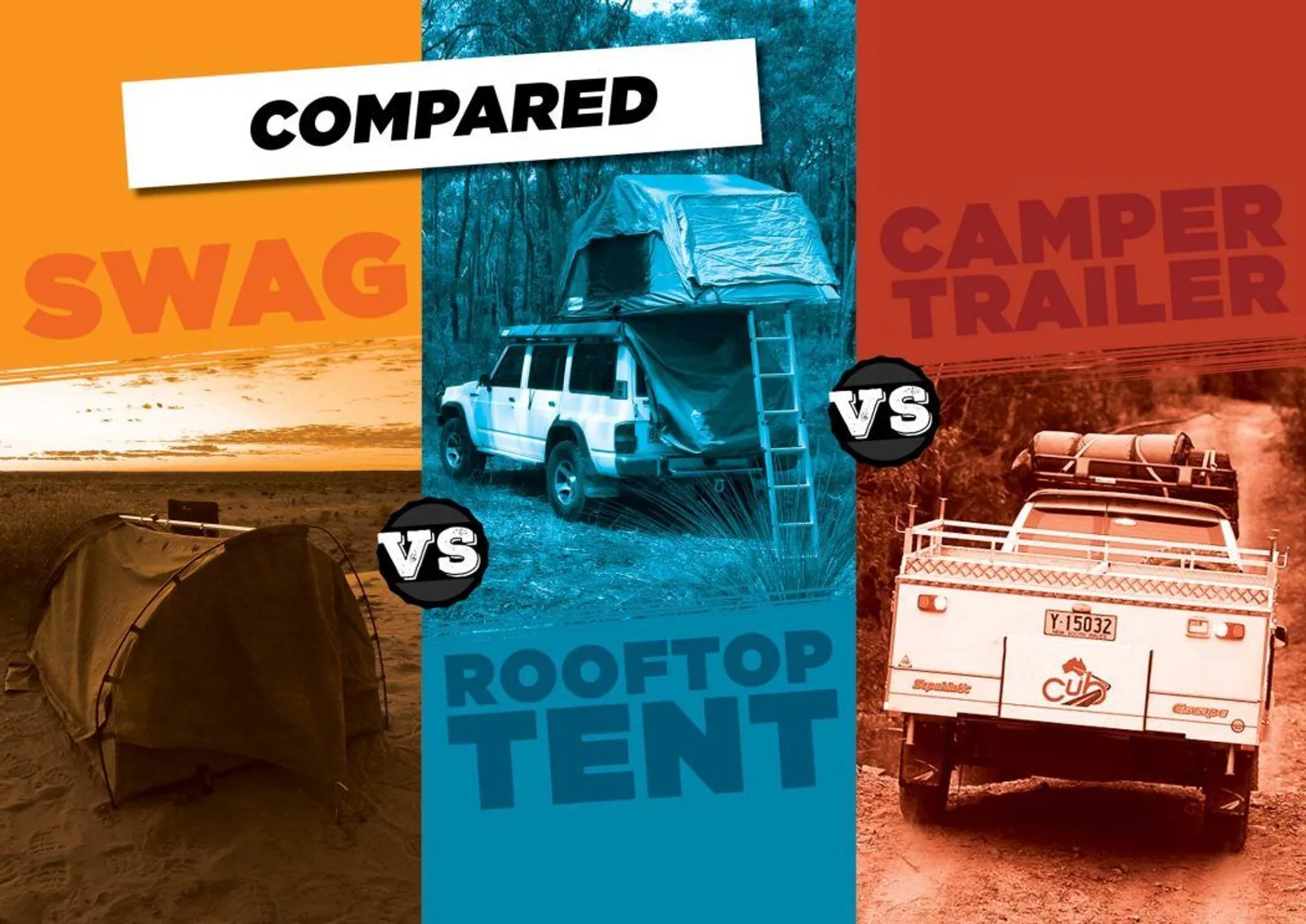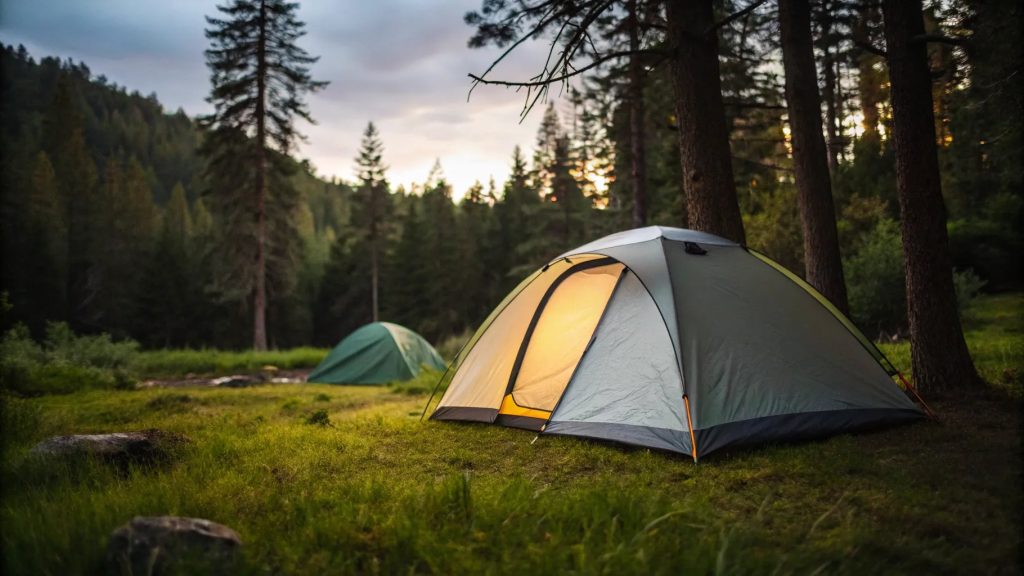Are you wondering whether to choose tent camping or an RV for your next outdoor adventure? You might think an RV offers all the comfort you need, but tent camping has some surprising benefits that could change the way you experience nature.
Imagine waking up to the sound of birds, feeling the fresh breeze on your skin, and truly connecting with the outdoors—all without the hassle of driving or setting up a big vehicle. You’ll discover why tent camping might just give you a richer, more exciting adventure than an RV ever could.
Keep reading to find out how tent camping can make your trip more affordable, flexible, and unforgettable.
Cost Benefits Of Tent Camping
Tent camping is a popular way to enjoy the outdoors. It costs less than RV camping in many ways. This makes it a good choice for people on a budget.
This article explains how tent camping saves money. We look at initial costs, maintenance, and campsite fees.
Lower Initial Investment
Buying a tent is much cheaper than buying an RV. Tents cost a fraction of the price of RVs. You can start camping with a small tent and a few supplies.
There is no need to take out a loan or save for years. A tent and basic gear cost less than one RV payment.
Reduced Maintenance Costs
Tents need little upkeep compared to RVs. You do not pay for engine repairs or oil changes. Cleaning a tent is simple and cheap.
RV maintenance can be expensive and time-consuming. Tent camping lets you spend less money on repairs and parts.
Affordable Campsite Fees
Campsites for tents usually cost less than RV sites. Some places charge extra for RV hookups. Tent sites often have lower daily fees.
- Basic tent sites have no extra costs
- No electricity or water hookup fees
- Many free or low-cost camping spots available

Credit: www.reddit.com
Closer Connection To Nature
Tent camping lets you experience nature in a pure way. It brings you closer to the outdoors than RV camping.
You feel the environment with all your senses. This helps you enjoy the natural world fully.
Immersive Outdoor Experience
Tent camping puts you right in the middle of nature. You hear birds, see trees, and feel the fresh air.
Without walls and machines, you get a real outdoor experience. You connect deeply with your surroundings.
Sleeping Under The Stars
Sleeping in a tent lets you watch the night sky. You see stars clearly without light from an RV.
The fresh air and open sky make sleep feel natural. It is peaceful and helps you relax deeply.
Sounds And Scents Of The Wild
Tent camping lets you hear natural sounds like rustling leaves and animal calls. These sounds calm your mind.
You also smell fresh pine, wet earth, and flowers. These scents make you feel part of the wild.
Greater Flexibility On The Road
Tent camping lets you travel with fewer limits. You can change your plans easily and explore more places.
Unlike RVs, tents are simple to carry and set up anywhere. This makes your trip more flexible and fun.
Easier Access To Remote Locations
Tents let you camp in spots that RVs cannot reach. Many remote places have narrow or rough roads.
You can hike or drive closer to nature with a tent. This access gives you a better outdoor experience.
Lightweight And Portable Gear
Tent camping gear is light and easy to carry. You do not need a large vehicle to bring your gear.
This makes traveling easier and saves fuel. You can pack only what you need without extra weight.
- Small tents fit in backpacks
- Light sleeping bags and mats
- Compact cooking tools
Spontaneous Travel Opportunities
Tent camping allows you to change your plans on short notice. You can stop anywhere and set up camp fast.
This freedom is hard to get with an RV. You can explore new areas without worrying about parking or hookups.
Physical And Mental Health Perks
Tent camping offers unique benefits for both body and mind. It helps people stay active and enjoy nature’s calmness.
Compared to RV camping, tent camping connects you more with the outdoors. This connection supports better health and mental peace.
Encourages Physical Activity
Tent camping often means hiking, gathering firewood, and setting up your camp. These tasks keep you moving and use different muscles.
Walking on trails and exploring nature helps improve fitness. The fresh air also boosts your energy and lung health.
- Hiking on uneven paths strengthens leg muscles
- Carrying gear builds upper body strength
- Setting up tents improves coordination and balance
- Outdoor play encourages more movement than sitting inside an RV
Promotes Mindfulness And Relaxation
Tent camping places you closer to nature’s sounds and sights. This helps you focus on the present moment and feel calm.
Listening to birds, feeling the breeze, and watching stars can reduce stress. It teaches your mind to relax and stay peaceful.
- Nature sounds help lower anxiety
- Watching natural beauty improves mood
- Simple living outdoors helps clear your mind
Disconnection From Technology
Tent camping often means less access to phones and screens. This break from technology helps your brain rest and recharge.
Without constant notifications, you enjoy deeper conversations and better sleep. This disconnection improves mental clarity and focus.
- Reduces screen time and eye strain
- Encourages face-to-face social interaction
- Helps reset your daily habits
Simpler Setup And Pack Down
Tent camping offers a simple way to enjoy the outdoors. Setting up a tent is faster and easier than managing an RV.
When you pack down, tents take less time and effort. This lets you spend more time relaxing and less time on chores.
Quick Pitching Techniques
You can pitch a tent quickly with some basic techniques. Most tents come with clear instructions and simple parts.
Practice helps you set up your tent in minutes. This is faster than preparing an RV for use or travel.
Minimal Equipment Required
Tent camping needs fewer tools and gear. You only need the tent, stakes, and sleeping gear.
- Tent and poles
- Ground tarp or footprint
- Sleeping bag and pad
- Basic camping tools (hammer, knife)
RV camping requires more equipment for maintenance and power. This makes packing and unpacking slower.
Less Time Spent On Logistics
Tent camping means fewer plans and simpler travel routes. You don’t need to find RV-friendly roads or parking spots.
Setting up utilities like water, power, and sewage is not needed with a tent. This saves time and reduces hassle.

Credit: www.club4x4.com.au
Environmental Impact Considerations
Tent camping is a great way to enjoy nature with less harm to the environment. It helps keep campsites clean and natural.
Compared to RV camping, tent camping uses fewer resources and lowers pollution. It supports a healthier planet.
Smaller Footprint On Campsites
Tents take up less space than RVs. They cause less damage to the ground and plants around campsites.
Less space means less soil compaction. This helps keep the area healthy for animals and plants.
Encouraging Leave No Trace Practices
Tent campers often follow Leave No Trace rules. These rules protect nature by reducing waste and damage.
Tents are easy to set up and take down without leaving marks. This helps keep campsites clean and natural.
- Pack out all trash
- Camp on durable surfaces
- Dispose of waste properly
Reduced Fuel Consumption
RV camping uses a lot of fuel to drive and power the vehicle. Tent camping needs only a small car or no vehicle at all.
Less fuel means fewer emissions. This lowers air pollution and helps fight climate change.
Community And Social Interaction
Tent camping brings people together in ways that RV camping often does not. It creates a natural space for social interaction and bonding.
Being close to nature helps campers relax and open up. This makes it easier to meet new people and enjoy group activities.
Engaging With Fellow Campers
Tent campers usually set up close to each other. This proximity encourages chatting and sharing experiences.
Campfires and shared spaces invite conversations. Campers can easily join in games or group meals.
Sharing Tips And Stories
Tent camping makes it easy to exchange useful advice. Campers talk about gear, safety, and good trails.
Storytelling around the fire helps pass time and build connections. Everyone enjoys hearing about past adventures.
- How to set up a tent quickly
- Best local fishing spots
- Tips for cooking outdoors
- Wildlife encounters and safety
Building Lasting Friendships
Sharing time in nature creates strong bonds. Tent campers often meet friends they see every year.
Group activities and challenges help campers trust each other. These friendships can last well beyond camping trips.
Customization And Personalization
Tent camping lets you create a unique experience. You choose how your camp looks and feels.
This freedom makes tent camping more personal than using an RV. You control every detail of your setup.
Choosing Your Tent Style
Tents come in many shapes and sizes. You pick one that fits your needs and style.
From small backpack tents to large family tents, there is a perfect option for everyone.
- Backpacking tents are light and easy to carry.
- Dome tents offer good space and stability.
- Cabin tents provide tall ceilings and roomy interiors.
- Pop-up tents set up quickly for short trips.
Personalizing Your Camp Setup
You decide where to place your tent and how to arrange your gear. This makes your camp feel like home.
Adding personal touches like lights, rugs, or chairs creates a cozy space that fits your style.
- Choose your favorite sleeping bag and pads.
- Use lanterns or string lights for soft lighting.
- Add a portable table or chairs for comfort.
- Bring decorations like flags or signs.
Adapting To Different Weather Conditions
Tent camping lets you change your setup for any weather. You can add or remove layers easily.
You can use different tents, rain flies, or tarps to stay dry and comfortable.
- Use a rain fly to protect from rain.
- Set up a tarp for extra shade or wind protection.
- Choose breathable tents for hot weather.
- Use insulated tents or extra blankets for cold nights.

Credit: solotravelerworld.com
Frequently Asked Questions
Why Is Tent Camping More Adventurous?
Tent camping offers a raw and immersive experience in nature. It encourages exploration and a stronger connection with the outdoors. Without the comforts of an RV, you rely more on your surroundings, making each trip unique. This sense of adventure brings a deeper appreciation for the environment.
Is Tent Camping More Affordable Than Rv Camping?
Tent camping is generally more cost-effective than RV camping. It requires less initial investment in equipment and lower campsite fees. Without the need for fuel or maintenance like an RV, expenses are reduced. This affordability makes it accessible for everyone, from beginners to seasoned campers.
Do Tents Offer A Closer Connection To Nature?
Tents provide an intimate experience with nature, allowing you to hear sounds and feel the environment. Unlike RVs, tents have minimal barriers between you and the outdoors. This closeness enhances the camping experience, making it more authentic and rejuvenating for nature lovers.
Are Tents Easier To Set Up Than Rvs?
Setting up a tent is often quicker and requires less technical know-how than parking an RV. With practice, assembling a tent becomes second nature. It involves fewer steps and less equipment, allowing you to start enjoying your camping trip sooner and with less hassle.
Conclusion
Tent camping offers a closer feel to nature and fresh air. It costs less and fits in many outdoor spots. Setting up a tent is simple and quick. You get to enjoy quiet nights and starry skies. It encourages more movement and adventure during the day.
Tent camping creates a strong bond with friends and family. Choosing a tent means embracing the true camping spirit. It’s a choice that brings joy and lasting memories.

